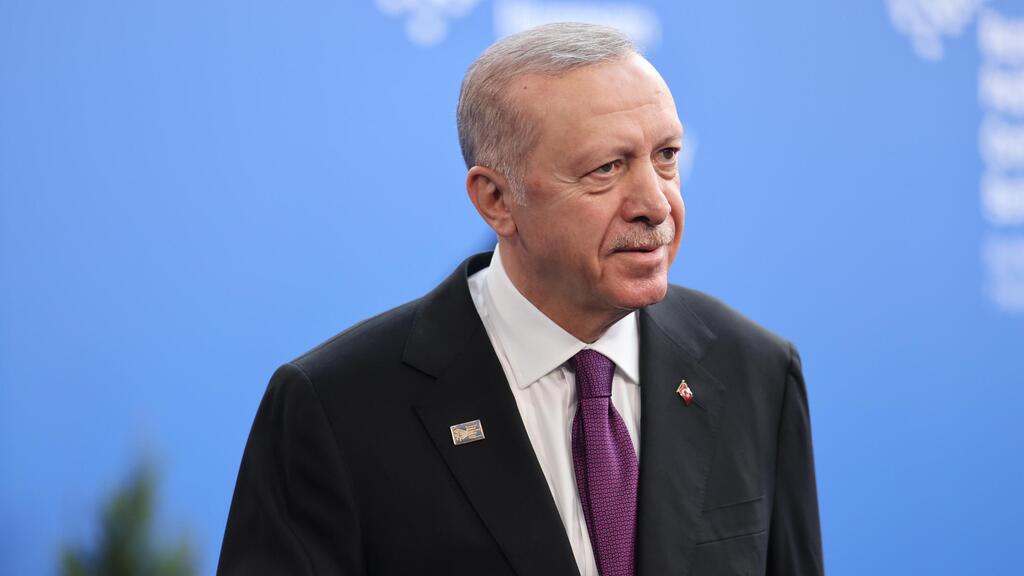A Kurdish friend of mine from Erbil, a longtime adviser to Iraqi Kurdistan President Nechirvan Barzani, reached out to me yesterday with a troubling message: He’s deeply concerned about recent developments in Syria.
Abu Mohammad al-Julani, the new leader in Syria, delivered a conciliatory message on camera stating, “The Kurds are part of us. We’ve endured hardships just like them, and God willing, we will unite in building a new Syria without distinctions among its residents, including the Kurds.” The declaration has done little to reassure the Kurdish community.
The Kurds, feeling increasingly threatened, are now urgently turning to Israel for help. My Kurdish contact explained that Syria’s new leadership is consulting with Turkey, cooperating closely with Ankara, and unable to escape President Recep Tayyip Erdogan’s grip. Meanwhile, Turkish military forces are intensifying their operations inside Kurdish territory, and the city of Kobani is under heavy Turkish attack, with fears that it could fall.
Turkey, a key supporter of the rebels who ousted President Bashar Assad in just 11 days of fighting, has emerged as the biggest winner in the Syrian upheaval. Ankara wasted no time reopening its embassy in Damascus last weekend, marking the end of a 12-year absence.
The new Syrian reality stems from a long history of behind-the-scenes collaboration. Turkey maintained ongoing contact with Syrian opposition groups, providing covert training camps and arms to the rebels, while Qatar offered financial backing. The division of roles was clear: Turkey supplied the military support, while Qatar funded the effort. Now, Turkish Defense Minister Yashar Güler has announced that if Syria’s new government is "interested," Turkey is prepared to cooperate with the New Syrian Army.
2 View gallery


Refugees return home from Turkey to Syria, Abu Mohammad al-Julani
(Photo: Abdulaziz Ketaz / AFP, Ozan Kose/ AFP)
With Assad fleeing to Russia, Erdogan sees himself as the victor. The Turkish president is determined to secure influence over his southern neighbor and insists on being left unchallenged in dealing with the Kurds, who control about one-third of Syrian territory, creating a contiguous area with Iraqi Kurdistan. Erdogan also faces the challenge of managing the 3.6 million Syrian refugees in Turkey. Thus far, only 1,847 have crossed back into Syria.
Syria, ravaged by 13 years of brutal war, needs a complete overhaul—requiring substantial funding, humanitarian aid, and a robust framework to address the basic needs of its people. Whether the new leader, Ahmad al-Sharaa (al-Julani), is up to the task remains to be seen.
While Assad drew power from Iran and Russia, the balance has shifted to Ankara, potentially disrupting Turkey’s relationships with Tehran and Moscow. Both have withdrawn their military advisers, leaving weapons in the hands of Syria’s new rulers. Moving forward, Ankara will act as the gatekeeper for Russia’s air and naval forces along Syria’s coastal cities.
Get the Ynetnews app on your smartphone: Google Play: https://bit.ly/4eJ37pE | Apple App Store: https://bit.ly/3ZL7iNv
On a more positive note, in his inaugural speech and a subsequent interview with Syrian state television, al-Julani stated plainly that Israel has yet to find its footing in the new Syrian landscape. He specifically called for Israeli Air Force operations in Syria to cease, declaring, “We have no plans to engage in conflict with Israel.”
IDF Chief of General Staff Lt. Gen. Herzi Halevi quickly responded, saying: “We are not interfering in what’s happening in Syria.” For now, Israel’s air strikes continue. However, with no Iranians or Hezbollah forces in the picture, one question looms: What is Israel still seeking in Syria?



